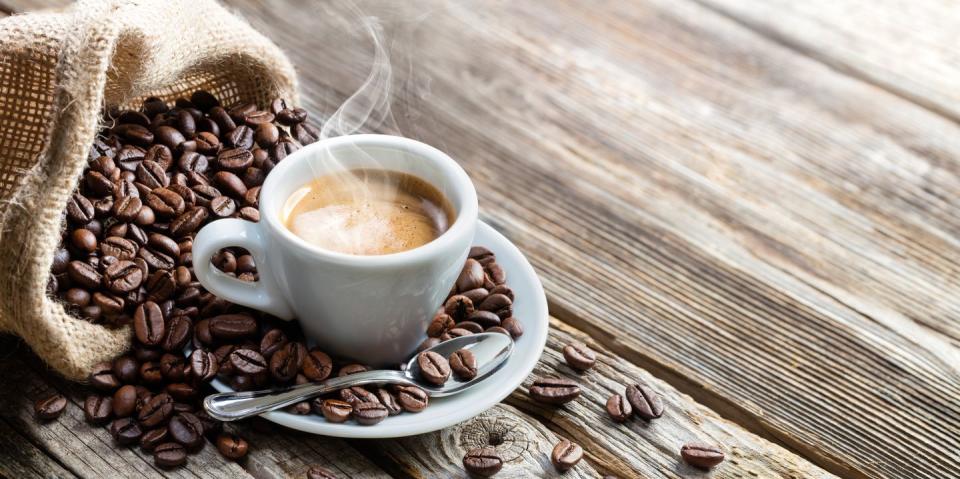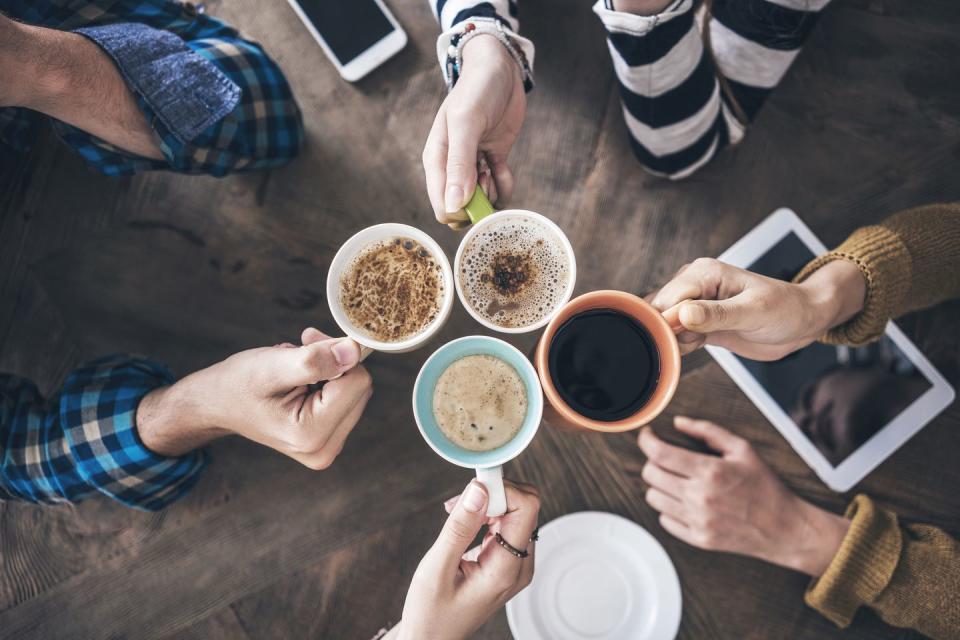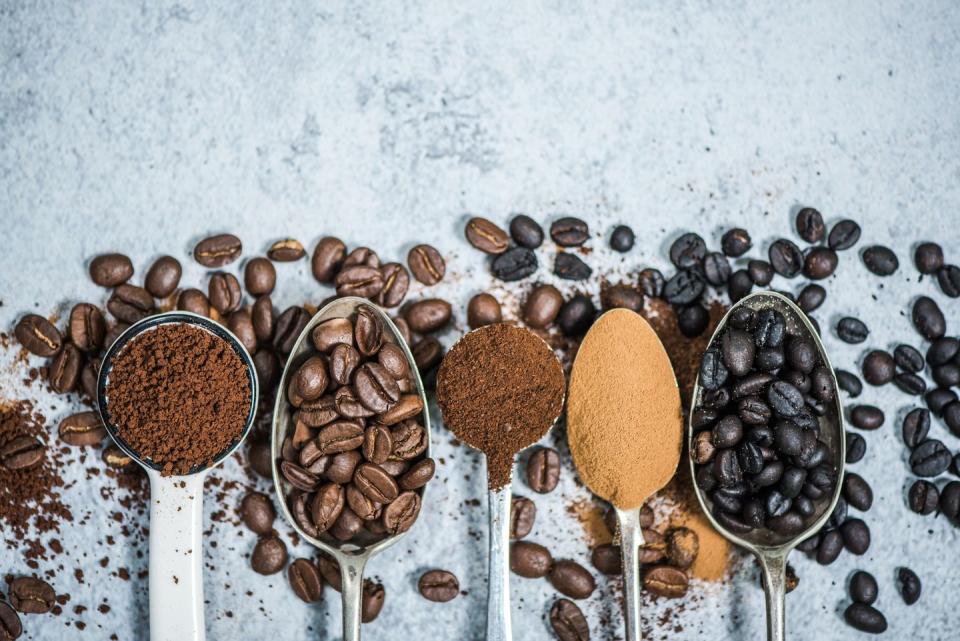QUIZ: How Much Do You Really Know About Coffee?

How much do you really know about coffee? This quiz will tell you. Let's get started:

The answer: It's good for you!
“Coffee is one of the richest sources of phenolics and polyphenols, which are antioxidants,” says Sampath Parthasarathy, Ph.D., associate dean of biomedical sciences at the University of Central Florida. Research shows that these compounds may help prevent or even repair some types of cell damage. A 2018 study found that those who drank coffee were less likely to die early than those who didn’t. And prior research suggests that coffee may reduce the risk of cancer, stroke, and diabetes. That said, caffeine is a stimulant that can cause sleep issues for some, and the acidity of coffee may trigger tummy troubles. But if neither is a problem for you, sip without worry.

The answer: False
While it’s true that caffeine is a mild diuretic, which means the stimulant will cause your kidneys to expel more sodium and water than they would if you were sipping water, coffee is still a liquid, so its hydrating properties balance out any diuretic effects, says Vince Bufalino, M.D., senior medical director at Advocate Health Care in Naperville, IL. In a study published in PLOS One, researchers looked at the blood and urine of participants who drank either coffee or an equivalent amount of water over a period of three days and found no significant difference in hydration levels.

The answer: Light roast
The more heat that’s put on coffee beans during the roasting process, the more moisture and caffeine are pushed out. A dark roast at Starbucks, for instance, packs 195 mg of caffeine, compared with 270 mg in a cup of blonde roast. (If you’re trying to avoid caffeine entirely, no coffee is your best bet: While the decaffeination process strips away 90% or more of the beans’ caffeine, research shows that decaf can still contain 15 mg or more per serving.) That said, “a lighter roast may preserve more biologically important ingredients,” says Parthasarathy. When researchers studied the levels of the antioxidant chlorogenic acid in various roasts, for instance, they found that the lighter the roast, the more it contained.

The answer: It's fine.
Most experts, including the American College of Obstetricians and Gynecologists, give pregnant java fans the OK to keep imbibing in moderation—that is, 200 mg or less (the amount in a 12-oz cup of coffee). While caffeine does cross the placenta—meaning your baby will get a little buzz right along with you—no conclusive studies have shown that a woman’s moderate coffee drinking while pregnant puts her baby at higher risk of health issues. Just remember to tally all sources of caffeine in your daily diet, including tea, chocolate, and soda. And if you’re concerned, talk to your doc, who may tailor the guideline based on your particular pregnancy and health.

The answer: No
If your kid’s cold-brew craving has you worried about this, relax: There’s no evidence that coffee stunts bone growth or development. This myth likely has its roots in the misconception that coffee causes osteoporosis, but as a study in Food and Chemical Toxicology noted, that early research was typically conducted on elderly people who weren’t getting enough calcium to begin with. Caffeine does have a very small effect on calcium absorption, but just 1 to 2 Tbsp of milk is enough to fully offset that, the researcher noted. In addition to getting enough dairy in her diet otherwise, tell your teen to embrace the cream in her coffee.
This article was originally published in the October 2019 issue of Prevention.
Like what you just read? You’ll love our magazine! Go here to subscribe. Don’t miss a thing by downloading Apple News here and following Prevention. Oh, and we’re on Instagram too.
You Might Also Like

